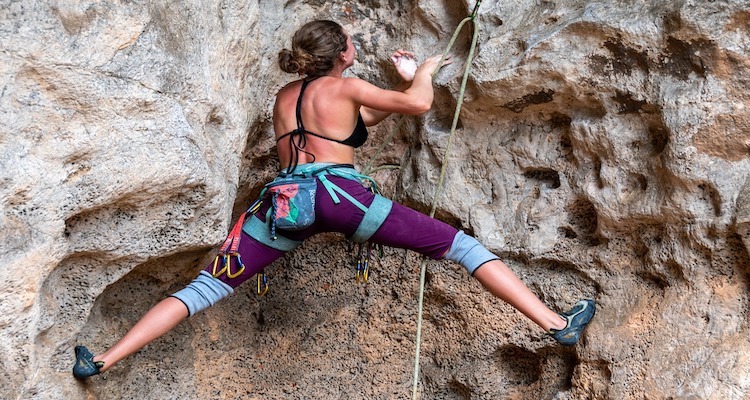
Rock climbing is an activity that is growing in popularity. However, it is difficult to estimate the exact number of people who participate in rock climbing as there is no comprehensive global database or registry of climbers, but it is likely millions of people who participate in the sport worldwide.
In the United States, for example, the Outdoor Industry Association reported that approximately 9.9 million people participated in rock climbing in 2019. The sport is also popular in Europe, Australia, and other parts of the world.
It's worth noting that there are different types of rock climbing, including indoor climbing, sport climbing, bouldering, and traditional climbing, and participation numbers may vary depending on the type of climbing and the location.
In this article we will explore the physical, social and psychological reasons why rock climbing is such a great activity to take part in.
Rock climbing is a physically demanding sport that offers numerous health benefits. Some of the physical benefits of rock climbing include:
Overall, rock climbing can be a great way to improve overall physical fitness and wellbeing.
Rock climbing can also offer a variety of social benefits, which include:
Overall, rock climbing can offer a range of social benefits, from building a sense of community to promoting mindfulness and stress relief.
Rock climbing can offer a variety of psychological benefits, including:
Overall, rock climbing can offer a range of psychological benefits, from improving problem-solving skills to reducing anxiety and depression. Climbing can be a great way to challenge oneself, build confidence, and promote overall mental wellbeing.
Many famous climbers have spoken about the physical, social, and psychological benefits they have experienced from rock climbing. Here are a few examples:
Overall, many famous climbers have spoken about the benefits they have experienced from rock climbing, including improved physical fitness, mental clarity, and a sense of community.
If you would like support in your rock climbing then why not consider contacting one of the specialists who advertise their services on our directory. There are individuals offering support in the areas of nutrition, psychology and physical preparation.
